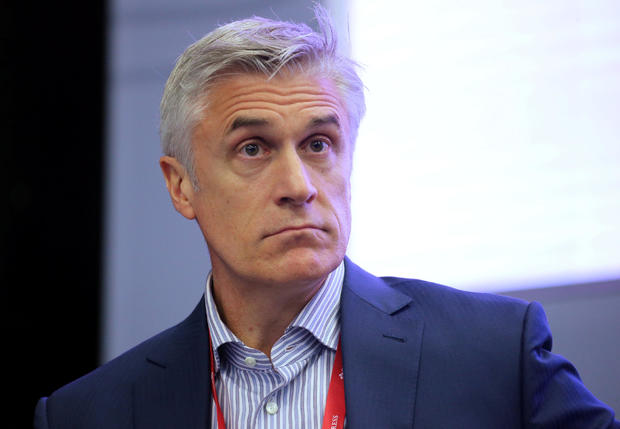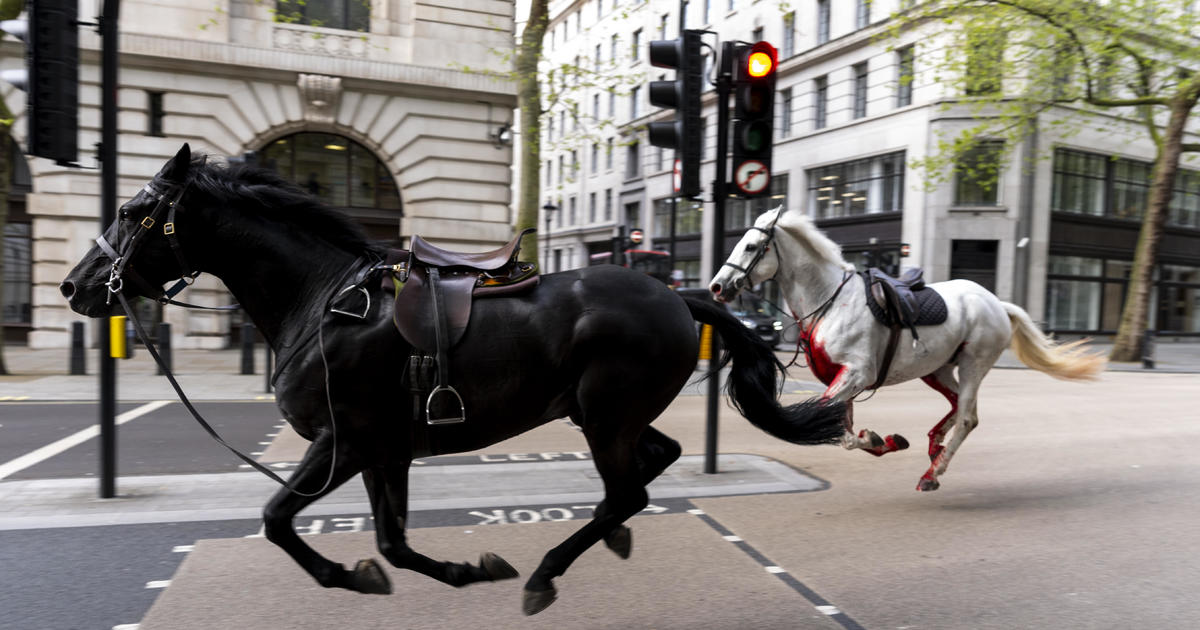Russia likely to let U.S. businessman Michael Calvey out of prison pending fraud trial
- American investment fund manager Michael Calvey has been imprisoned in Russia for almost 2 months on fraud allegations.
- A court is expected to grant a request by Russia's national Investigative Committee to move him into house arrest pending the trial.
- The case has rattled the business community in Russia, including American business leaders.
- The move comes on the heels of another high-profile prisoner's release and could reflect a softening by the Kremlin, but one analyst says any "thaw" will be limited.
Moscow -- Russian law enforcement authorities on Wednesday petitioned for veteran American investment fund manager Michael Calvey to be released from prison and placed under house arrest pending an investigation and trial. The motion was filed by the federal Investigative Committee at a Moscow district court almost two months after Calvey, founder and senior partner at Baring Vostok equity firm, was taken into custody along with five other people, including two Baring Vostok managers.
The court was scheduled to rule on the request Thursday afternoon and was widely expected to grant the release to move Calvey, who was arrested in Moscow in February on fraud charges, from prison into house arrest.
Russian police have accused Calvey and his associates of embezzling 2.5 billion rubles ($37 million) from Vostochny Bank, of which Baring Vostok owns a controlling stake. Calvey has denied all allegations and insisted that his prosecution was the result of a protracted dispute between the bank's various shareholders.
Calvey's legal team appealed the arrest immediately, but the Moscow City Court ruled to keep him behind bars.
In late February Bloomberg reported that President Vladimir Putin had told businessmen in a closed-door meeting that he hadn't personally approved Calvey's arrest, but that the embezzlement of as much as 2.5 billion rubles couldn't be ignored. The Kremlin also denied any political motive behind Calvey's arrest.
Shock to the business community
The case sent shock waves throughout Russia's business community. A dozen prominent business owners, investors and managers expressed outrage over the fact that a commercial dispute was being resolved in criminal instead of civil court.
"We are talking about an incorrect evaluation of stocks, which is obviously a commercial dispute that needs to be resolved within civil legal framework," Boris Titov, Russia's Kremlin-appointed business ombudsman, wrote in a column for the Vedomosti daily in February, days after Calvey's arrest. "Criminal law has nothing to do with it."
Calvey's arrest rattled the U.S. business community in Russia, too. American investors and CEOs, and U.S. Ambassador John Huntsman, according to a Financial Times report, were even willing to boycott the upcoming St. Petersburg International Economic Forum, biggest opportunity for Russia to showcase its business and trade opportunities.
The motion to release Calvey to house arrest comes just two months before the forum.
Is there a trend here?
His likely move from prison also comes on the heels of the sudden release of another prominent prisoner, film and theater director Kirill Serebrennikov.
On Monday, Serebrennikov, who was also prosecuted on controversial fraud and embezzlement charges, was unexpectedly freed on bail.
Unlike Calvey's, the case against Serebrennikov -- who staged a number of politically charged plays -- is believed to have been entirely politically motivated, but both cases have elicited a fair amount of public outrage.
Russian political analysts believe the Kremlin has made a deliberate decision to release prominent prisoners to try and defuse mounting tension within Russian society.
"The Kremlin understands that it can't tighten the screws all the time. It's not powerful enough to completely ignore the society's demand for democratization and dialogue," Abbas Gallyamov, a former Kremlin speechwriter turned political analyst, told CBS News.
Gallyamov said the recent concessions may well be linked to contradicting moves by Russia's government, including the adoption of repressive laws that ban disrespecting state authorities in public and spreading anything officials deem to be "fake news."
"The authorities want to balance it out," suggested Gallyamov. But don't look for a democratic Russian renaissance just yet, or even a thaw in the Putin government's tough line.
"Putin sees politics in two dimensions; 'strength' and "weakness,' and a thaw for him is a synonym for 'weakness,'" the analyst said. "There will be two more screws tightened for each one loosened."




